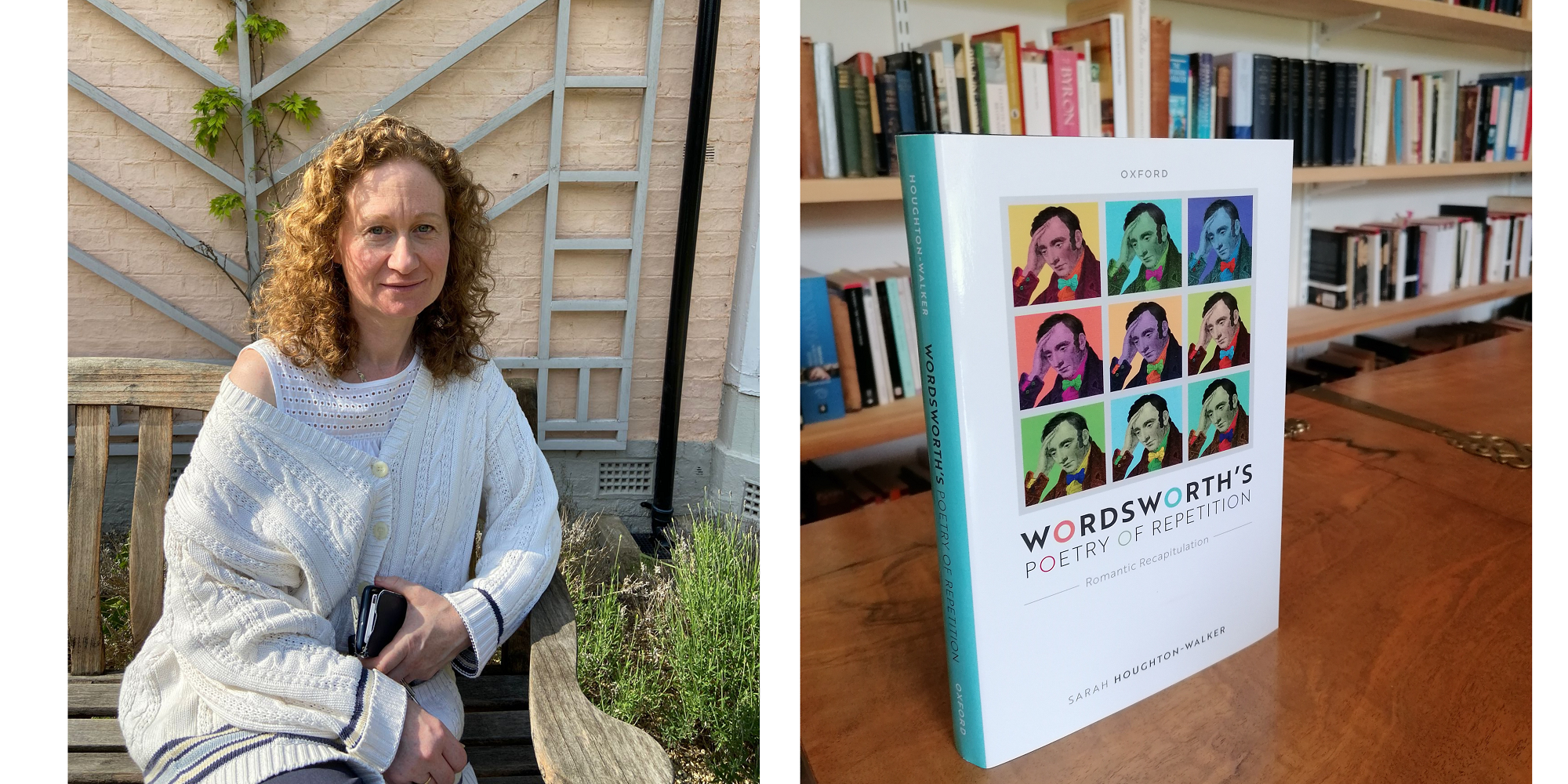The biggest concern for Gonville & Caius College Fellow Dr Sarah Houghton-Walker when working on her new book, Wordsworth's Poetry of Repetition, was that she might be repeating work herself.
“There’s so much scholarship on Wordsworth that I lived every day with the fear that somebody might already have written this book,” says Sarah, an English Fellow whose previous books include Representations of the Gypsy in the Romantic Period and John Clare’s Religion.
“I was also really worried in case I didn’t notice moments where I was carelessly repeating myself.”
Sarah, who works on poetry in the Romantic period, initially was writing on lots of writers, but gradually focused on William Wordsworth and the different ways repetition is important to him: as an aspect of rhyme, metre, and form, but also though allusion and in rhetorical address, for example.
“I focused on Wordsworth because he’s very explicitly interested in repeating things,” she adds. “I could see patterns between what Wordsworth was saying about this big romantic ideal of ‘sincerity’, and the things he was saying about the possibilities of repetition.
“Whilst it might seem like repetition is boring or unimaginative, for him it’s functioning as a way of transcending the trap writers find themselves stuck in, a sense of not feeling able to put things into words.”
Sarah explored Wordsworth’s allusions to other writers, such as John Milton, and explains that Wordsworth also repeats himself sometimes by using the same structures, or even the same word, which to many might sound weak or unimaginative.
“He says explicitly that there’s something about repeating the same word that carries with it the awareness of the inability to say what you really want to say,” Sarah says.
Repetition is central to Wordsworth’s most famous poem, I Wandered Lonely as a Cloud.
Sarah says: “In that poem there are several small repetitions. They’re not really obtrusive, but they punctuate a poem which is about seeing some daffodils, going away from the scene, and later on thinking about looking at the daffodils: the poem is articulating the repetition of experience in the imagination.
“In ‘Beside the lake, beneath the trees’, for instance: there’s a pleasing structural repetition, and also a repetition of the be- prefix. When you start to look, all of his writing is like that. He’s repeating in really subtle, gentle ways in order to evoke, I think, this sense of the experience of looking back.
“It allows the text to articulate that sense, without needing to state it too explicitly, at which point it loses its subtlety and stops doing the very thing that Wordsworth thinks that it does.”
Sarah cautions against her students repeating themselves in their work, unless they are doing so with full awareness. A careful proof-read is still necessary.
“If you’re just repeating the same thing, it loses its value. What Wordsworth is interested in, which is different, and which most students are not particularly in the business of, is the idea of reconfiguration,” she says.
“It’s not just a straightforward repetition. It carries a sense of difference. Even with a direct repetition, the second time it is said, it’s different because it is a repetition. Repetition is never neutral. By virtue of repeating, something can grow, or gather momentum.
“But if students are alert to what they’re doing, and they’re using repetition to have a positive effect and to make their reader better understand what they’re saying - brilliant.”
Sarah’s next project is a critical biography of Clare, while she is also working on a book on representations of weather, which is likely to feature both Clare and Wordsworth.
“I expect Wordsworth will pop up. He’s such a big figure in the Romantic period, it’s hard to ignore him,” she says.
“But initially I am going to go back to Clare, who as a poet of nature wrote some amazing descriptions of weather phenomena.”


